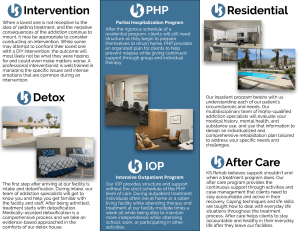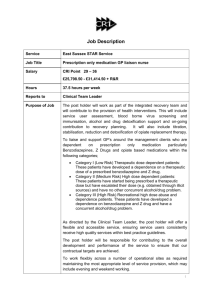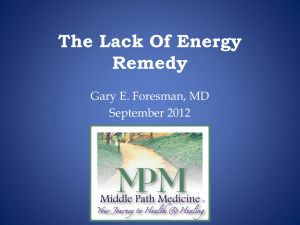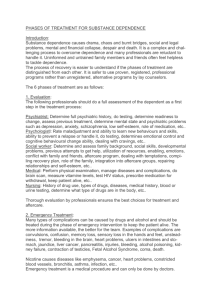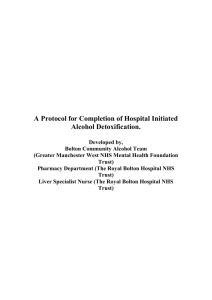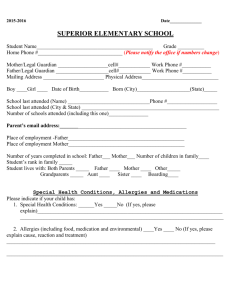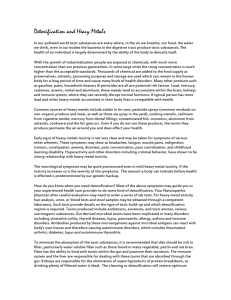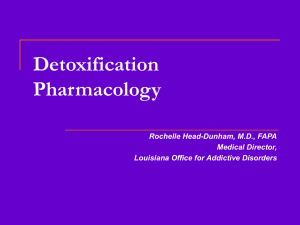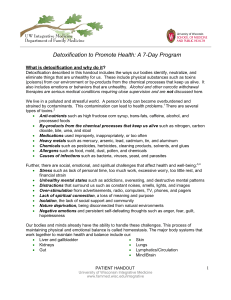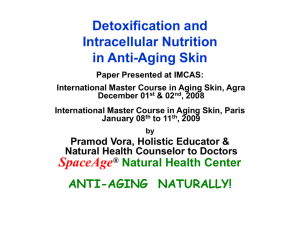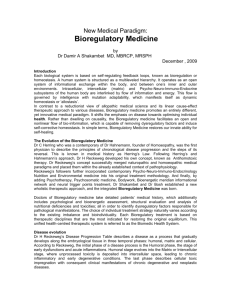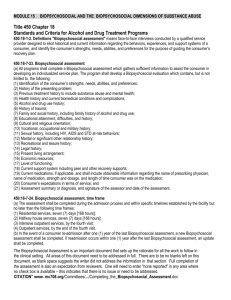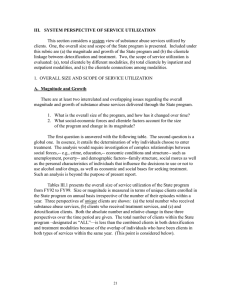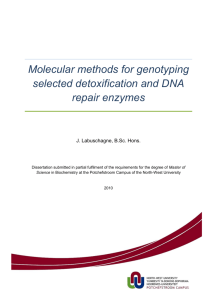Alcohol Detox Young Carer Information Leaflet
advertisement
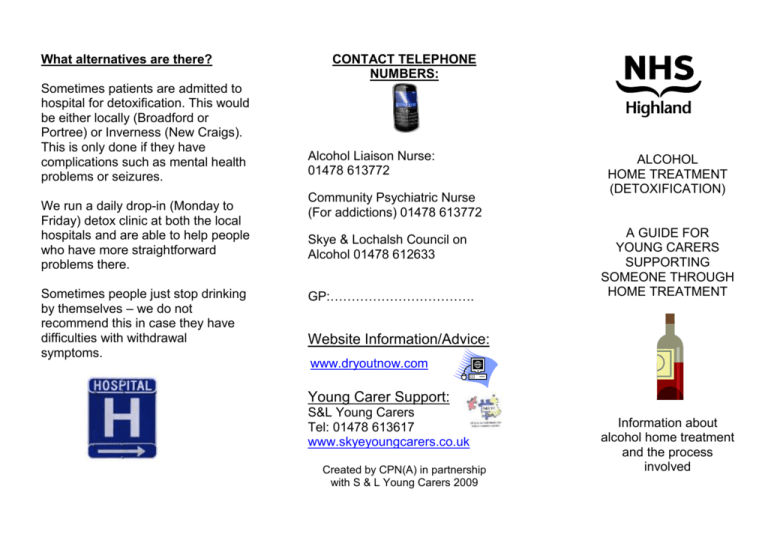
What alternatives are there? Sometimes patients are admitted to hospital for detoxification. This would be either locally (Broadford or Portree) or Inverness (New Craigs). This is only done if they have complications such as mental health problems or seizures. We run a daily drop-in (Monday to Friday) detox clinic at both the local hospitals and are able to help people who have more straightforward problems there. Sometimes people just stop drinking by themselves – we do not recommend this in case they have difficulties with withdrawal symptoms. CONTACT TELEPHONE NUMBERS: Alcohol Liaison Nurse: 01478 613772 Community Psychiatric Nurse (For addictions) 01478 613772 Skye & Lochalsh Council on Alcohol 01478 612633 GP:……………………………. ALCOHOL HOME TREATMENT (DETOXIFICATION) A GUIDE FOR YOUNG CARERS SUPPORTING SOMEONE THROUGH HOME TREATMENT Website Information/Advice: www.dryoutnow.com Young Carer Support: S&L Young Carers Tel: 01478 613617 www.skyeyoungcarers.co.uk Created by CPN(A) in partnership with S & L Young Carers 2009 Information about alcohol home treatment and the process involved Alcohol Detoxification Is the process of removing alcohol from the body Symptoms Are signs that point to an underlying illness Alcohol withdrawal Is when alcohol is leaving the body Relapse Is a setback What is home detoxification from alcohol? When somebody has been drinking alcohol to the extent that they suffer from withdrawal symptoms when they stop, they are given a short course of medication to take away their symptoms and make them comfortable. The symptoms can include shaking hands, sweating, sleeplessness, hallucinations (hearing, seeing, smelling, tasting or feeling things which are not there), agitation (restlessness and anxiety), nausea (feeling sick), vomiting, sometimes fits (seizures) and diarrhoea. How is it organised? The doctor or the nurse makes an assessment and prescribes the medication. It is given at home on a daily basis, and visits are made regularly by the nurse. What tablets are prescribed and are there any side effects? The doctor usually prescribes a drug called Chlordiazepoxide, or sometimes diazepam. It has to be taken four times a day and the dose gets less and less over a week. Sometimes people get drowsy on it, but we try to prescribe enough to take away the symptoms without causing too much drowsiness. We also prescribe thiamine, a vitamin B drug that helps the general health and improves appetite. It also protects the nervous system which sends signals from the brain to the organs and muscles. Sometimes Antabuse can be given; this is known as aversion therapy. If the people drink alcohol while they are on it they will become very unwell and will start vomiting. It can cause nausea when taken at first but this soon passes. People need to be careful with perfume and deodorants that contain alcohol and they should not eat sauces etc. that contain alcohol. What else can help? When somebody is going through home detoxification we advise that the home is kept as quiet and stress free as possible. Try to keep noise levels low (particularly music) and it’s advisable not to have too many visitors during the detox week. Try to encourage the person you are caring for to eat small regular meals with plenty of fluids. We advise family members not to drink alcohol in the house during this time because it can be very stressful and can lead to relapse. If you think the person you are caring for is not on the right medication because their symptoms are not under control or you have any other worries then please do contact the Liaison nurse.
